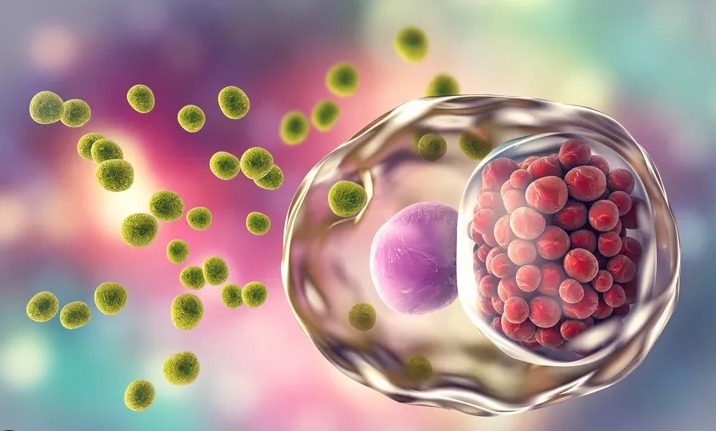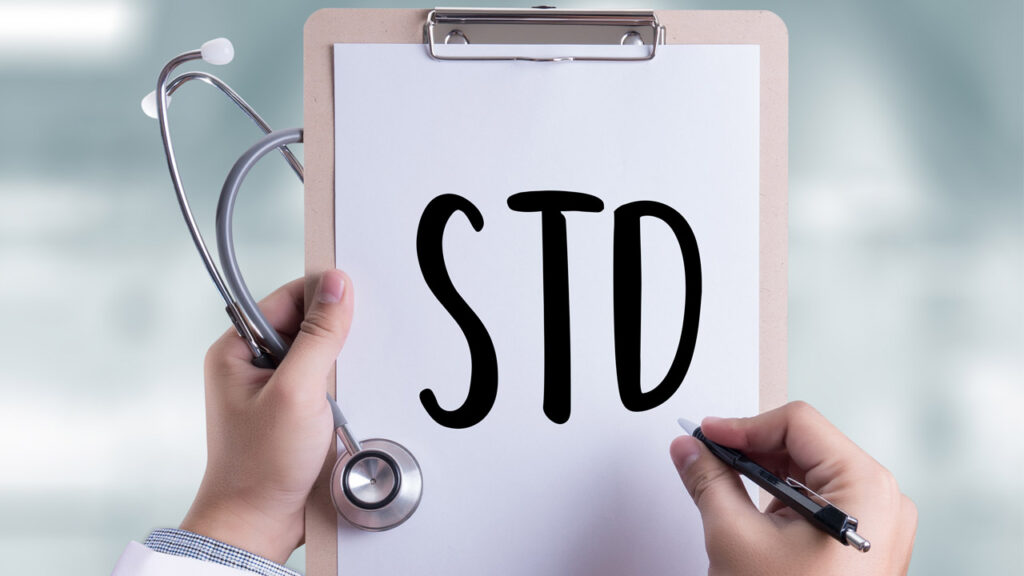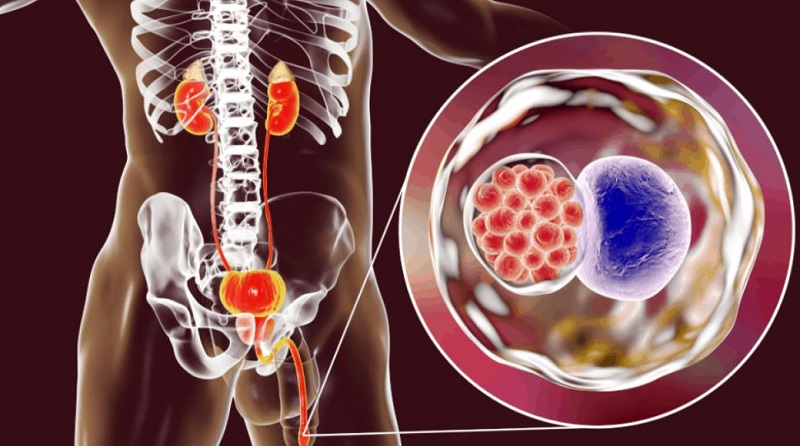You Really Need to Know:
STD testing is one of those important life responsibilities, like taxes or car insurance. We are glad you are here, taking a responsible step toward helping yourself and potentially protecting other people. Getting tested for an STD doesn’t have to be difficult. There are plenty of local STD testing centers standing by to help you take control of your health and empower you to live your life to the fullest.

Choose What Tests You Want to Run
You are in charge here. Choose what tests you want to run. Getting a full STD panel is the easiest and most comprehensive way to go.

Find Local STD Testing Centers Near You
Go to an STD testing facility near you. There are thousands to go to—we can help you find your way.

View Your Results Online
Get tested same day. View your results online when you are ready, wherever you want for your privacy.

Talk to a Doctor
Speak to a health care professional if there are any issues.
Have you ever felt a lingering sense of fear when thinking about your sexual health?
Every time the term “sexually transmitted disease (STD)” is mentioned, does a wave of anxiety wash over you, making you wonder: “Am I safe?”
Instead of taking action, you choose silence, hoping that everything is fine, even though deep down, you’re worried about what could be happening inside your body.

Do you feel this way?
If so, you’re not alone. Millions of people are living with similar fears, feeling stuck, not knowing how to confront the reality of sexually transmitted diseases (STDs). They endure the stress, fear, and shame while their health silently deteriorates.
Let’s explore the hidden pains that those living with STDs are quietly enduring:
10 HIDDEN PAINS THAT PEOPLE WITH STDs SUFFER
1. Fear of being stigmatized

Imagine you’ve just found out you have an STD. You look around, wondering, “If I tell anyone, will they still see me the same?” You hesitantly share the news with a close friend, but in return, you receive looks of judgment, suspicion, or even outright avoidance.
The fear of social isolation isn’t just from strangers but from friends, family, and even loved ones. Stigma acts as an invisible wall, making them feel lonely, afraid to share their health concerns.
It’s like a pristine white cloth stained by ink. No matter how hard you try to clean it, the mark remains, and people never forget it. This is how those with STDs feel when faced with the judgmental gaze of society.
2. Shame and guilt

Shame creeps into their thoughts every day. They ask themselves, “Why did I let this happen? Why wasn’t I more careful?” The guilt lingers, causing them to continuously blame themselves.
This feeling doesn’t only surface when they discover the illness but remains present in every daily decision. They shy away from everything, from meeting friends to starting a new relationship.
Guilt is like a small crack in a mirror. At first, it’s barely noticeable, but over time, the crack grows until the entire mirror shatters.
3. Worry about long-term health
Will this STD affect their life in the long run? This question constantly haunts them. Even after treatment, they worry about potential future complications. Some STDs, like HIV or HPV, can lead to severe diseases like cancer, leaving the individual with lasting anxiety.
Imagine living in a beautiful house, but one day, you discover that the foundation is rotting. Even though the exterior looks strong, with each passing day, the internal decay worsens. This is how people with STDs feel about their long-term health.
4. The fear of transmitting the disease to others
One of the biggest fears for someone with an STD is the possibility of unknowingly spreading the disease to others, especially their loved ones. This thought haunts them like a shadow. They aren’t just worried about their health but feel an immense responsibility towards others.
It’s like holding a delicate crystal glass, knowing that even the slightest mistake could shatter it. People with STDs feel as though they’re carrying a heavy responsibility that one small slip could cause devastating consequences.
5. Impact on romantic relationships

Will their partner still accept them if they know they have an STD? This question causes hesitation and fear, making them reluctant to open up about their condition. This leads to distance and lack of trust in the relationship. Over time, love fades, and many relationships break down due to this fear.
Love is like a candle; if not protected, even the slightest breeze can blow it out. People with STDs feel like they are that breeze, always afraid of damaging their relationship.
6. Concerns about fertility
For those wanting to have children, STDs can be a major fear. Some STDs can lead to infertility or increase the risk of complications during pregnancy. The thought of being unable to have children, or worrying about the health of their future child, causes them to feel that life has lost part of its meaning.
Imagine a thriving garden full of flowers and fruit, but one day, the soil becomes barren and unable to support life anymore. This is how people with STDs might feel when thinking about their future fertility.
7. Difficulty finding a life partner
After discovering they have an STD, finding a new relationship becomes more challenging than ever. They wonder, “Who would accept me?” This fear of rejection causes them to lose confidence and often retreat into their comfort zone, afraid to open up to anyone.
It’s like a door locked from the inside. Even though many people want to enter, the fear of having an STD causes them to lock themselves in isolation.
8. Cost of treatment
Treating STDs can be expensive, especially for conditions that require long-term monitoring or continuous treatment. This not only puts financial pressure on them but also makes them worry about maintaining their treatment. For many, the cost becomes a barrier, causing them to hesitate in seeking help.
The cost of treatment feels like a heavy cloak they must wear every day, weighing them down and making it hard to breathe.
9. Lack of knowledge and support
Many people with STDs don’t have enough information about their disease. They feel confused, overwhelmed, and unsure of where to start to find the right resources and support. A lack of knowledge only increases their anxiety, pushing them into a state of stress and fear.
They feel like they’re lost in a dark forest without a map or guide. The lack of support from those around them only deepens their sense of isolation.
10. Fear of reinfection or complications
Even after successful treatment, the fear of reinfection or future complications remains ever-present. Every time they notice a small abnormality, they panic, worrying if the disease has returned.
Imagine someone who has just escaped a major flood, but every time it rains, they fear that the flood will return and wash everything away again.
IS THIS FEAR NECESSARY?
These pains are silently eating away at you every day. But are these worries really necessary? What will happen if you keep avoiding the issue? STDs don’t just affect your health; they deeply impact the quality of your life, from your relationships, finances, and even the future of your family.
You can continue living in silent fear, or you can take action today. Let us help you overcome this fear.
DISCREET, SAFE, AND PROFESSIONAL STD TESTING SERVICES
Our STD testing services offer you a completely discreet, safe, and judgment-free experience. We understand your worries and are committed to providing the most compassionate support.
- Complete confidentiality: No one but you will know your results.
- Fast and accurate: Our team of top experts, using advanced technology, ensures accurate results in the shortest possible time.
- Comprehensive consultation: We don’t just provide results; we offer detailed advice on your health status and the appropriate treatment plan.
- Affordable pricing: Don’t worry about costs. We offer a variety of testing packages tailored to suit everyone’s budget.
Don’t let the fear of STDs control your life. Act today to protect yourself and your loved ones.
Contact us now for consultation and to book your STD test!


STD Testing Facilities—STD Tests and Clinic Locations
HIV Testing
HIV (human immunodeficiency virus) is the virus that causes AIDS (acquired immunodeficiency syndrome). A positive HIV test can be a life-changing event. HIV wears down the body’s immune system over time. Eventually, HIV can progress to AIDS. People with AIDS may get life-threatening diseases called opportunistic infections. These infections do not usually make healthy people sick. Those with HIV/AIDS are also more likely to develop certain cancers, neurological disorders, and a host of other conditions.
There is currently no official cure for either HIV or AIDS. This is why it is so important to get regularly tested. STD testing means early detection. Early detection means better treatment for you and a reduced risk of giving HIV to someone else.
Herpes Testing
Herpes is caused by either herpes simplex virus type 1 (HSV-1) or type 2 (HSV-2). Most genital herpes is caused by HSV-2. HSV-1 is incredibly common and usually causes oral herpes. Many people notice no symptoms or show only minimal signs of herpes infections.
When signs of genital herpes do occur, they typically appear as one or more blisters on or around the genitals or rectum. The blisters break, leaving tender ulcers (sores). These first-time sores may take two to four weeks to heal. Another outbreak can appear weeks or months after the first. However, later outbreaks are usually not as severe or as long-lasting as the first one. Fortunately, the number of outbreaks tends to decrease over time.
People can manage their symptoms, but there is no cure for herpes. Even condoms will not always prevent this infection. This is because sores can appear in different places, not just condom-covered ones. (Condoms are still important, though. Proper use can decrease the chances of catching herpes and other STDs.)

Chlamydia Testing
Chlamydia is the most common STD. It is caused by the bacterium Chlamydia trachomatis. This STD can damage a woman’s reproductive organs if left untreated. Symptoms of chlamydia are usually mild or absent. Yet just because symptoms are mild doesn’t mean chlamydia can’t cause some serious damage. In fact, serious complications can occur and cause irreversible damage, including infertility. This can all happen “silently,” before someone even realizes they have this STD. Chlamydia also can affect men. Although rare, men can also face long-term complications from this STD. Fortunately, chlamydia is easily detected with a simple test.
Gonorrhea Testing
The bacterium Neisseria gonorrhoeae causes the extremely common STD gonorrhea. This bacterium can grow and multiply easily in the warm, moist areas of the reproductive tract. This can include the cervix (opening to the womb), uterus (womb), fallopian tubes (egg canals), and the urethra (urine canal). The infection can also grow in the mouth, throat, eyes, and anus. If you may have been exposed to gonorrhea, you should get tested to receive an accurate diagnose.
Syphilis Testing
The bacterium Treponema pallidum causes syphilis. You may have heard people call it “the great imitator.” This is because so many signs of syphilis look incredibly similar to the symptoms of other diseases. This imitation makes it hard to diagnose this STD based on symptoms alone. A broad panel of STD tests is a helpful way to see if any symptoms are from syphilis or something else.
Hepatitis Testing
Hepatitis means an inflammation of the liver, and it isn’t just transmitted sexually. In fact, many different things can cause hepatitis. So, besides sex, just what can cause hepatitis?Certain drugs, some diseases, heavy alcohol use, and bacterial and viral infections can all cause this disease.
When people think of hepatitis, they are probably thinking of viral infections that affect the liver. The most common types in the United States are hepatitis A, B, and C. Looking for symptoms alone is no way to be certain of your health status; a full panel STD tests can check for different types of hepatitis.
Trichomoniasis Testing
Many commonly call this STD trich and pronounce it like “trick.” Trichomoniasis is one of the most common STDs in the United States. According to the Centers for Disease Control and Prevention (CDC), 3.7 million people in this country alone have it. The CDC also reports that roughly 70% of people infected with trich don’t notice any signs of this STD.
Urinalysis Testing
Urinalysis (UA) is a clinical term for a common urine test. These tests can reveal a lot about people’s health, like if they use drugs or have an STD like chlamydia. So, a UA can give people a better idea of their overall health, including their sexual health.
How does this work? Let’s break it down. Kidneys are located on either side of the spine at the bottom of the rib cage, and they are an important part of the urinary system. What exactly do kidneys do? Well, they filter wastes out of the blood, help regulate how much water is in the body, and conserve proteins, electrolytes, and other compounds that the body can reuse. And anything the body doesn’t need? That’s removed through urine.
Urine travels from the kidneys to the bladder, through the urethra, and out of the body. Urine is generally yellow and relatively clear. However, every time someone urinates, the color, quantity, concentration, and content of the urine will be slightly different for various reasons. These reasons range from dehydration to having an STD.
STD Panel Testing
If you suspect you have contracted one or more STDs, one of the best ways to take charge of the situation is to take an STD panel. This way, you can be absolutely certain of your sexual health. A leading indicator of carrying an STD is a previous diagnosis. In fact, having one STD makes you more susceptible to new infections. For this reason, a broad panel of STD screens may be recommended.
How to Have Safer Sex
Having safer sex means you face less risk of contracting an STD (also known as an STI) and experiencing an unplanned pregnancy. But just what does safer sex mean? If you want to better protect yourself and any partners you have, it pays to know how to properly practice safer sexual activities.
